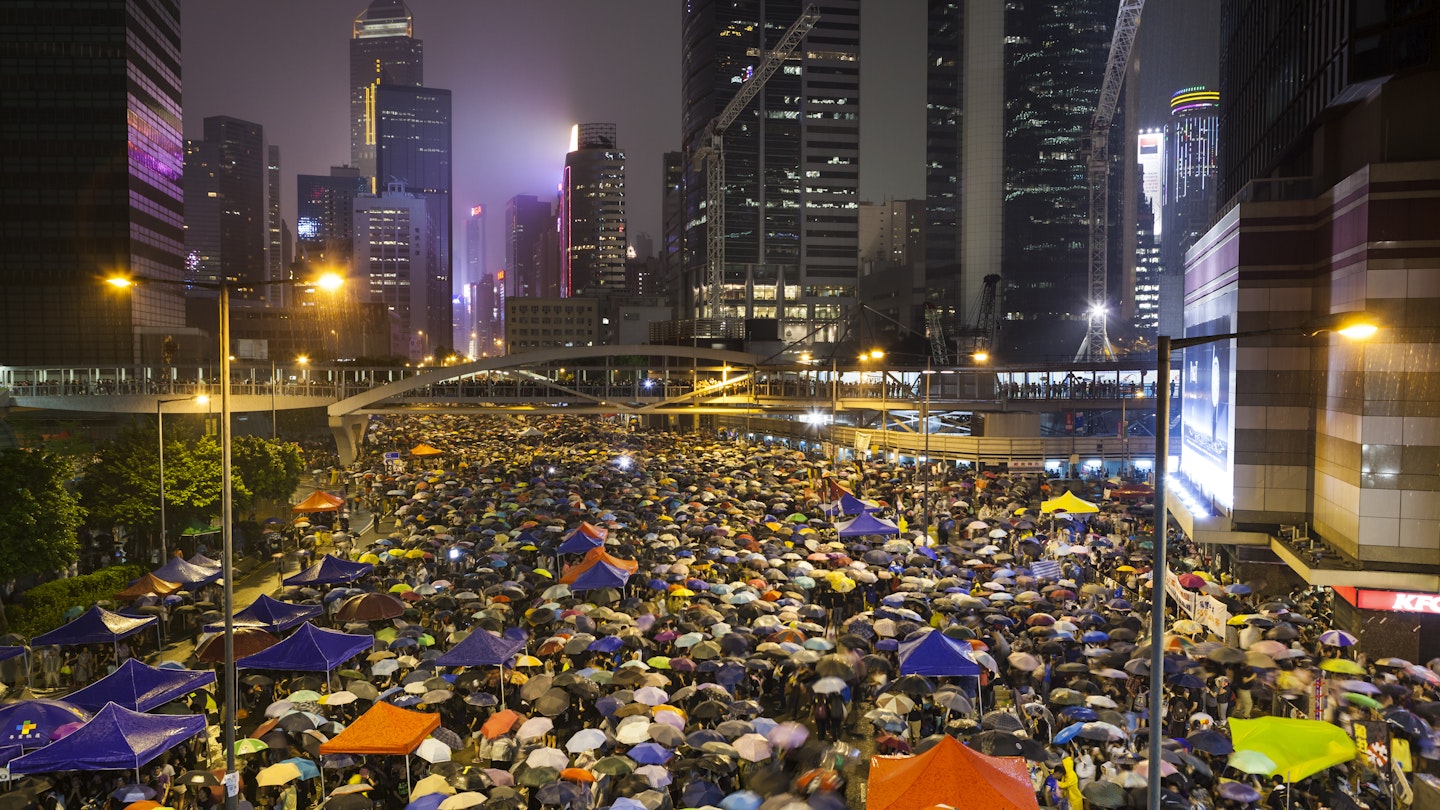Protests and strikes are a fact of life around the world. From peaceful marches to more disruptive demonstrations, they’re a way for residents to affect change when other means don’t work, or to voice their discontent with the local government, businesses, or other authorities.
Unfortunately, these events can severely disrupt your travel plans or put your safety at risk. If you’re in or traveling to an area where protests or other civil unrest is happening, here are some tips for staying safe and making the most of your trip.
Weigh the Risk vs Cost
When deciding whether to proceed with a trip to a location experiencing unrest, sometimes the choice is clear. For instance, if the airport is shut down or flights are canceled, or if governmental advisories suggest avoiding travel, caution is critical.
In other scenarios, such as in Spain, Ecuador, and Hong Kong – where extensive protest activities have taken place – advisories may still permit travel with increased caution. Therefore, assessing the situation thoroughly becomes essential.
Consider the following:
- Is the entire country or city affected, or only specific areas? How easy is it to avoid trouble spots?
- Are airlines offering refunds or free changes?
- How much would you lose financially if you decided to cancel?
- What are locals or current travelers recommending?
- Is the issue a genuine safety threat or merely an inconvenience?
- How likely is it that the situation will escalate?
- Could you end up stranded, unable to reach the airport?
- Am I contributing to the unrest?
Know What’s Covered by Insurance
Many standard travel insurance policies do not cover civil unrest, terrorism, or acts of war. Coverage might be available only if you purchased “Cancel for Any Reason” insurance, which typically has to be bought quickly and may still not return all your funds.
Alternatively, consider your credit card benefits. Certain credit cards, such as the Chase Sapphire Reserve or the American Express Platinum, often provide travel protections that can aid in recouping expenses.
Register with Your Embassy
For US citizens, registering with the Smart Traveler Enrollment Program (STEP) can provide essential alerts regarding local disruptions. However, be aware that real-time updates may be faster through local news sources.
Inform your family of your travel plans and provide them with embassy information; this ensures they have a point of contact should you need assistance. However, don’t rely solely on the embassy for emergency rescues unless in imminent danger.
Follow Local News and Expats
For real-time updates, local news outlets can provide more in-depth and timely information than foreign publications. Utilize social media platforms to stay informed; for example, Twitter hashtags can yield useful insights and updates.
However, while engaging with expats, recognize that their perspectives may not always reflect the entire situation of the city, especially if they reside in areas less affected by unrest.
Be Flexible, as Situations Can Change Instantly
Protests can shift in location, and what was a safe route can become dangerous unexpectedly. Thus, securing refundable accommodations and transportation options is advisable to adapt as necessary.
Bring Cash and Stock Up on Supplies
During unrest, the availability of cash and critical supplies may diminish. Ensure you have adequate cash on hand, as banking services could be compromised. It’s wise to stock up on basic necessities like food, water, and a backup battery for your devices in case of outages.
Pack Light
Traveling light can significantly ease your mobility if you need to evacuate swiftly or navigate through disrupted transportation. Avoid checking in luggage whenever possible to minimize delays during unforeseen circumstances.
Avoid Active Protests
If you encounter a protest, maintain a low profile and move away from the gathering swiftly yet calmly. Find secure locations in your accommodations and remain indoors during heightened unrest periods.
Know How to Get Help
Familiarize yourself with local emergency numbers and identify nearby hospitals and police stations. Keep the contact details of your embassy accessible. Staying in a hotel can provide additional security, while selecting an Airbnb with an attentive host ensures prompt assistance if needed.
In these situations, prioritize safety and maintain a positive outlook – it enhances your travel experience regardless of challenges faced.





